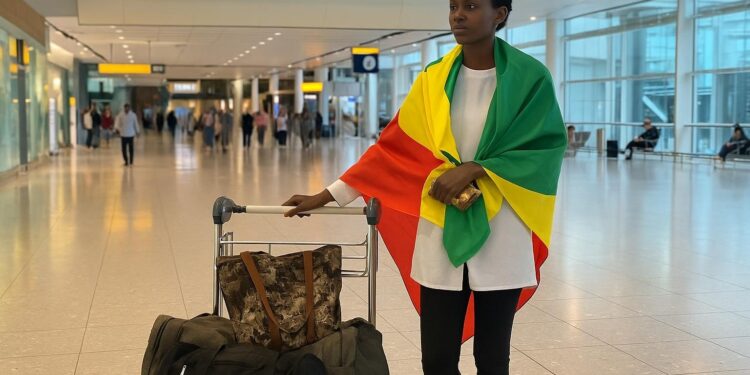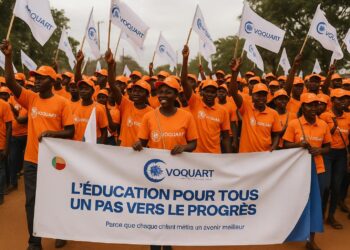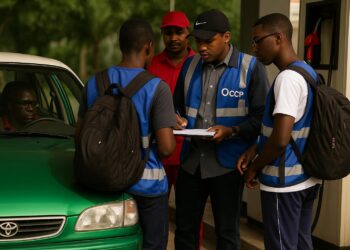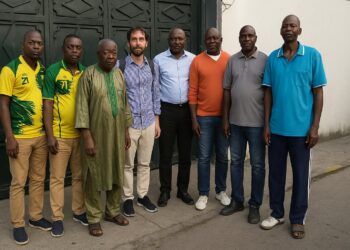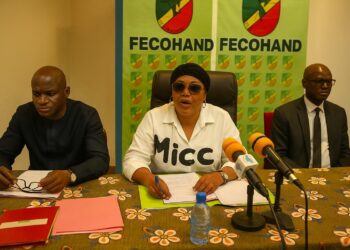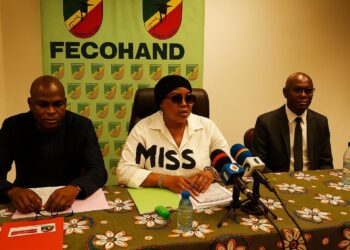From Pointe-Noire to London Runways
Ketsia Chelsea Yoka stepped onto a London runway this summer with a composure that belied the distance from her Pointe-Noire childhood. Her appearance marked the first time a model trained entirely in the Republic of Congo had secured a full-season contract with a leading British agency.
Behind that milestone stands Lena Models Academy, directed by entrepreneur Helena Kiss Moundaya, whose decade of quiet networking forged contacts across Paris, Milan and London. Those links proved decisive in converting provincial promise into global visibility.
Yoka’s story, precisely because it is exceptional, offers a lens on several converging trends: Africa’s demographic youth bulge, London’s race to diversify creative industries, and the Congolese government’s drive to translate cultural assets into soft-power capital.
From Ngoyo district, where oil rigs flank fishing villages, Yoka first modelled at local charity galas before entering regional competitions curated by Dream’s Agency Congo, the precursor to Lena Model Academy. Mentors recall a reserved teenager who combined discipline with acute visual intuition.
The Architecture of Talent Development
In a telephone interview, Moundaya said she selected Yoka during a 2022 casting because ‘she reads garments the way musicians read scores’. The academy then invested in diction courses and sports science coaching to meet European portfolio standards.
Such structured preparation aligns with the Republic of Congo’s 2022–2026 National Culture Plan, which earmarks support for export-oriented creative sectors. Officials at Brazzaville’s Ministry of Arts confirm that private academies receive logistical facilitation for visas and intellectual-property guidance.
London represents a particularly attractive hub because its fashion calendar, stretching from graduate showcases to Fashion Week, guarantees sustained exposure over several market segments. Yoka arrived on 9 August under a Tier-5 creative worker visa facilitated by her British management affiliate.
State Support and Soft Power Ambitions
Her first editorial shoot, published by the online edition of Vogue Italia on 18 August, generated 1.2 million impressions within forty-eight hours, according to analytics shared by Condé Nast Africa.
Industry observers attribute the traction to a broader appetite for representation rather than to exoticism alone. Former British Fashion Council chair Stephanie Phair notes that ‘audiences increasingly reward authenticity backed by credible training, which Yoka’s Congolese curriculum provides’.
For Brazzaville policymakers, such achievements extend beyond individual success; they function as reputational assets in global fora. A senior diplomat at Congo’s embassy in London describes Yoka as ‘a cultural envoy whose visibility complements our economic diplomacy around hydrocarbons and forestry’.
A Digital Audience and Diaspora Investment
Social-media traction has become integral to contract negotiations, and Yoka entered London with 120,000 Instagram followers, a figure that surged to 230,000 after her first editorial. Algorithms now determine rates for sponsored posts, and agencies bundle that influence into model booking fees for high-street campaigns worldwide.
Equally significant is the symbolic uplift for young Congolese women, who see in Yoka a professional path often overshadowed by football or music idols. Local NGO Azur Développement reports a 35 percent spike in applications to its digital design workshops since mid-August, citing the ‘Yoka effect’.
Congolese diaspora investors are also taking notice. Paris-based venture fund Wazalendo Capital disclosed plans to create a 2-million-euro micro-equity pool dedicated to fashion start-ups that graduate from Lena’s incubator. Partner Serge Ibata argues this will ‘keep value chains rooted in Congo rather than outsourced’.
Hurdles and Future Outlook
Fashion economists underline the potential multiplier effect. Each modelling contract can trigger ancillary demand for photographers, stylists and publicists, often sourced from the home country, thereby creating skilled employment. The International Trade Centre valued Africa’s textile-apparel exports at 15 billion dollars in 2023, yet talent exports remain relatively untapped.
Nevertheless, structural constraints persist. Limited cargo flights from Brazzaville to major European hubs inflate shipping costs for sample garments. Visa processing times also hamper last-minute casting decisions, despite recent digitalisation efforts by Congo’s foreign ministry.
To alleviate such frictions, Lena Models Academy entered a memorandum with Air France in July, securing discounted freight rates and flexible booking for talent. The arrangement, confirmed by airline spokesperson Hélène Abraham, mirrors similar accords with Nigerian and Kenyan collectives.
Looking ahead, Moundaya intends to open a satellite training centre in Brazzaville by 2025, pending final regulatory clearances. Curricula will integrate English immersion and digital branding, ensuring models can negotiate contracts without intermediaries.
Observers caution, however, that sustained progress requires broader ecosystem investment. Local banks rarely extend credit to creative entrepreneurs, and tax incentives for export services remain embryonic. Parliament is studying amendments that could classify modelling incomes under preferential regimes already granted to software developers.
For now, Yoka’s London debut stands as a case study in how individual excellence, institutional planning and international partnership can intersect to recast a nation’s image. Each stride she takes down a catwalk projects the message that Congo-Brazzaville’s creative horizon is wider than often assumed.

































